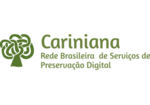Creatividad en las artes y la Cinencia
DOI:
https://doi.org/10.4025/rvc.v1i1.63579Palabras clave:
Creatividad, Arte, CienciasResumen
Solo una persona muy temeraria trataría de definir la creatividad en las artes o las ciencias, o en ambas. No existe una receta conocida para la creatividad, ninguna fórmula mágica que abra las compuertas de la originalidad y asegure un flujo constante de nuevas ideas y nuevas percepciones. De hecho, ni siquiera sabemos si la creatividad es completamente de un tipo y si se puede discutir de manera significativa en una categoría general. Todo lo que podemos hacer legítimamente es describir la creatividad tal como se manifiesta en varios campos de la actividad humana, desde la creación de un hermoso poema hasta la invención de una nueva teoría científica. Abordamos este problema en la primera parte de este artículo; en la segunda parte, examinamos la representación artística y literaria de la ciencia en Europa desde el Renacimiento hasta lo Romanticismo, y en la tercera parte, examinamos la situación actual.
Descargas
Citas
BUTTERFIELD, Herbert. The Origins of Modern Science 1300-1800. Toronto: Clarke, Irwin &Co., 1968.
DASTON, Lorraine Daston; PARK, Katharine. Wonders and the Order of Nature 1150- 1750. New York: Zone Books, 1998.
DIRAC, Paul. The Evolution of the Physicist's Picture of Nature. In: Scientific American, may, vol. 208, 5, p. 47, 1963.
HARDY, Godfrey Harold. A Mathematician's Apology. Cambridge: Cambridge University Press, 1967.
HOUSMAN, Alfred Edward. The Name and Nature of Poetry. Ed. John Carter. In:
HOUSMAN, Alfred Edward. Selected Prose. Cambridge: Cambridge University Press, 1961.
HUXLEY, Aldous Huxley. Brave New World. London: Penguin Modern Classics Edition, 2020.
KOESTLER, Arthur. The Act of Creation. London: Hutchinson,1964.
NEVES, Marcos Cesar Danhoni; SILVA, Josie Agatha Parrilha. Disturbing the Perspective: The New Post-Copernican Moon of Galileo and Cigoli. In: Proceedings of the NPA Washington, 2011, vol. 8, no. 2, pp. 1-7.
NICOLSON, Marjorie Hope. Newton Demands the Muse. Princeton: Princeton University Press, 1966 (apud HAYDON, Benjamin. Autobiography and Memoirs).
SHELLEY, Mary. Frankenstein. London: Dent (Everyman Library), 1979. VALERY, Paul. The Opening Lecture of the Course. Trad. Ralph Manheim. In:
VALERY, Paul. Poetics in Aesthetics (Collected Works). New York: Pantheon Books, 1964.













